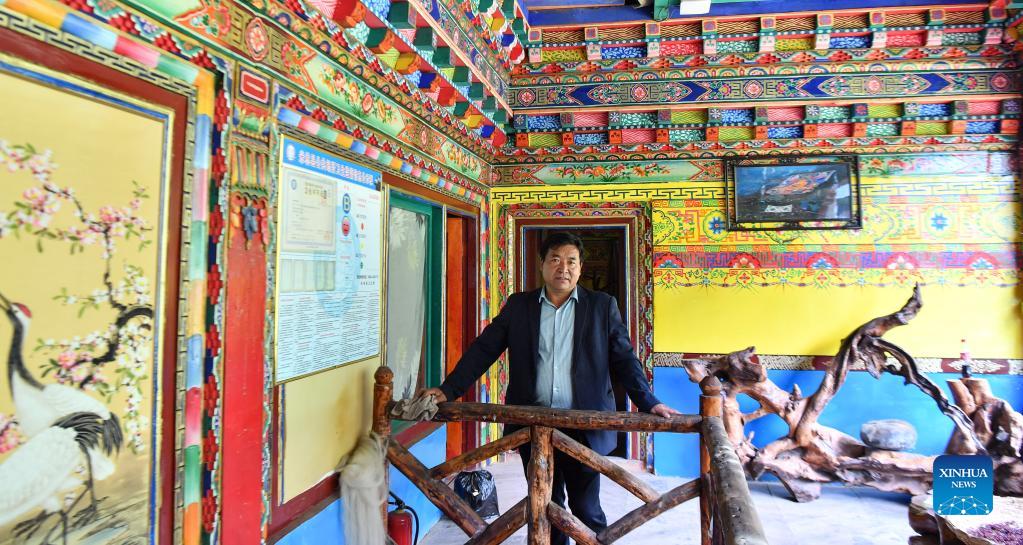Xi and Tibet -- footprints and blueprint for a green future


IMPRINTS ON PEOPLE'S MINDS
Now, the catchphrase that "lucid waters and lush mountains are invaluable assets" is not only shown on public posters, but also firmly imprinted on the minds of all people in Tibet.
Paljor, a 62-year-old tree planter in the city of Shannan, has been both a contributor and a beneficiary of the region's greening endeavor.
Over the past years, he has turned some 27 hectares of barren land in Shannan into a nursery by planting over 70 types of trees.
With the support of the local government, his gardening center now has an annual output of about 4 million yuan (around 628,000 U.S. dollars). With his expertise, he has also assisted other areas in Tibet with their greening projects.
"Tibet is now standing at a new historical starting point for advancing ecological progress," said Zhao Kun, deputy head of the regional department of ecology and environment.
"People of all ethnic groups in Tibet will surely play the 'ecology card' well and stick to the green path," Zhao said. "While building Tibet into a highland of ecological civilization, we will share our experience of green development with the rest of the country."
Padma Tsering, a 72-year-old villager in Nyingchi, has put the notion into practice over the past decade. He was chosen to be a ranger 10 years ago, as he knew the nearby forests like the back of his hand from his previous experience as a logger.
"I believe what I'm doing will benefit many future generations," he said.
Jigme also bid farewell to the timber business a long time ago. "Instead of felling trees, we now protect them. With a better environment, we can make a good living by planting edible fungi and cherries, and providing homestay services to tourists," said Jigme, who now earns a stable income from the booming tourism industry.
"Now I'm firmly convinced that clear waters and lush mountains are valuable assets, and so are the snowy and icy landscapes, just like General Secretary Xi put it," Jigme said. "I will tell my children to learn my lesson and better protect nature."

- Historical Han Dynasty slips go on display in Hohhot
- Shanghai unveils steps to build sci-tech innovation corridor in Yangtze River Delta
- Xiangchao concludes with Yongzhou claiming championship
- Answers
- CPC leadership meeting urges steadfast implementation of eight-point decision on improving conduct
- Ethiopian coffee trading center unveiled in Zhuzhou





































